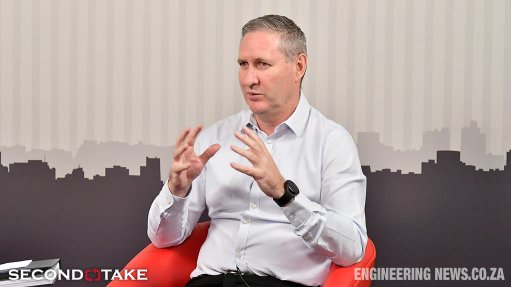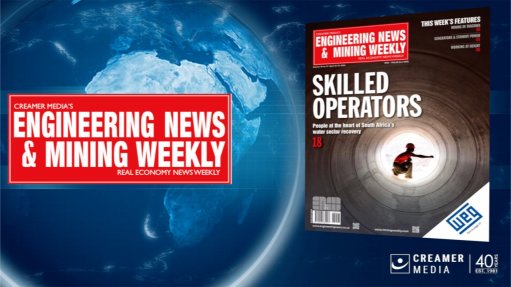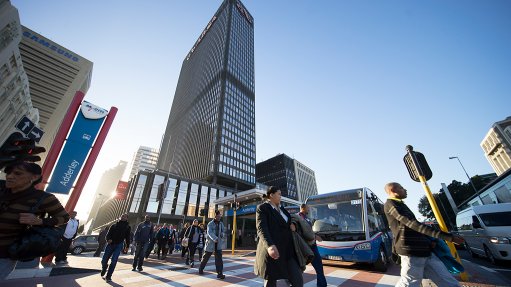Covid-19 – it’s serious and things will never be the same again
Talk about living in “interesting times”! Actually, these would be better described as extraordinary times. Coming to work on the morning I wrote this column, I found that the normal traffic had pretty much evaporated. What was normally a 90-or-so-minute commute took me 59 minutes (I timed it). It was like being a character at the start of a science-fiction apocalypse movie. The cause, of course, was the novel coronavirus disease 2019, or Covid-19, as it is now officially called, which now hangs like a pall over everything.
True, most of its victims are older people. Your vulnerability to it increases after 60, and again after 70 and yet again after 80. According to Chinese health authorities, 80% of the deaths in that country were people aged 60 and above. But that means that 20% of the deaths were among people aged younger than 60. Only 0.1% of the deaths were among people aged 19 or less. And I am over 60. And I have friends in their 80s. And my parents are not far from their 90s (their retirement home, near Cape Town, is now in lockdown). Further, among my much younger colleagues, there are a number with the dreaded “pre-existing conditions” that make them very vulnerable. So, this thing can’t be taken lightly.
There is also another point, which the health authorities, worldwide, tend not to stress, for obvious reasons. Coronaviruses can mutate frighteningly fast and unpredictably. What is today, for most people, a bug that causes a mild infection could, next week, be absolutely lethal. That is what happened with the infamous Spanish Flu of 1918/19. Originally, in Spain (which is where it was first detected, not where it originated from) it was a bit of a joke – it was so mild. And then it mutated. It infected an estimated 500-million people (33% of the global population at the time) and killed at least 50-million.
So, governments are right to take this very seriously indeed, and to take extreme measures to deal with it. And, in South Africa, we have the added problem of a large number of people with HIV/Aids, who may be very vulnerable. President Thabo Mbeki’s pernicious legacy of refusing to listen to, and apply, expert medical opinion regarding HIV/Aids has again come back to haunt South Africa. I personally think that Mbeki did more damage to the country than President Jacob Zuma’s administration. A country can recover from corruption, even massive corruption. South Africa will never recover from the demographic damage that happened under Mbeki. Under Zuma, lots of money was stolen, but lots of lives were saved through the widespread provision of anti- retroviral drugs.
So far, I haven’t mentioned the economic impact. A global recession is guaranteed. Worse, there is a real danger of a depression. But this is for the economists to discuss.
There are even greater things at play. We may very well be witnessing the end of the second era of globalisation. The supply disruptions now being experienced around the world are the greatest ever in peacetime. Only the outbreaks of the First and Second World Wars provided comparable, or greater, shocks to international trade.
Globalisation is not the same thing as trade. It is not even the same thing as free trade. It is free trade and international economic integration (not least, in terms of supply chains) taken to very high levels, stimulated and facilitated by major technological advances. “Our” era of globalisation is not the first. The first such era happened in the nineteenth century where, as in our time, the development of free trade, coupled with revolutionary technological advances, created unprecedented economic integration, prosperity and socioeconomic development.
Go read some of Sir Arthur Conan Doyle’s Sherlock Holmes stories. Note how easily and swiftly Holmes and Dr John Watson travel around, on the railways, or by ferry to the continent of Europe. And note too, how Holmes uses the telegraph as a kind of Internet, swiftly accessing information from all over the world, contacting friends in Chicago, New York and Paris. All the produce of the world could be found in London – the world, not just the British Empire.
All this was brought to a shattering halt with the outbreak of the First World War. It was not restored when the war ended in 1918. It was not restored until the 1990s, and our, second, age of globalisation began. And now our era of globalisation may be ending.
Certainly, things will never be the same again. ‘Just-in-time’ manufacturing is clearly dead. No manufacturers in their right minds will, in future, tolerate not having on-site stockpiles of essential inputs. Many manufacturers will also be pondering moving their supply chains closer to their main production plants. Somewhat higher costs may be a perfectly acceptable price for everyone to pay if it ensures security of supply.
And governments, at least in the richer countries that can afford it, will very probably encourage the “insourcing” of the manufacture of products and systems – and their key components and subsystems – that are perceived to be of national importance, not at least medical equipment and pharmaceuticals. This in addition to such moves in the more obviously strategic sectors of aerospace and defence.
Such developments could put certain high-tech sectors of the South African economy in an awkward position. The Department of Trade, Industry and Competition, for example, has had a very sensible aim of trying to get the small but high-quality South African aerospace industry inserted into global supply chains supporting the great aerospace giants. But what if those global supply chains now disappear? I hope someone starts thinking about these things.
Comments
Press Office
Announcements
What's On
Subscribe to improve your user experience...
Option 1 (equivalent of R125 a month):
Receive a weekly copy of Creamer Media's Engineering News & Mining Weekly magazine
(print copy for those in South Africa and e-magazine for those outside of South Africa)
Receive daily email newsletters
Access to full search results
Access archive of magazine back copies
Access to Projects in Progress
Access to ONE Research Report of your choice in PDF format
Option 2 (equivalent of R375 a month):
All benefits from Option 1
PLUS
Access to Creamer Media's Research Channel Africa for ALL Research Reports, in PDF format, on various industrial and mining sectors
including Electricity; Water; Energy Transition; Hydrogen; Roads, Rail and Ports; Coal; Gold; Platinum; Battery Metals; etc.
Already a subscriber?
Forgotten your password?
Receive weekly copy of Creamer Media's Engineering News & Mining Weekly magazine (print copy for those in South Africa and e-magazine for those outside of South Africa)
➕
Recieve daily email newsletters
➕
Access to full search results
➕
Access archive of magazine back copies
➕
Access to Projects in Progress
➕
Access to ONE Research Report of your choice in PDF format
RESEARCH CHANNEL AFRICA
R4500 (equivalent of R375 a month)
SUBSCRIBEAll benefits from Option 1
➕
Access to Creamer Media's Research Channel Africa for ALL Research Reports on various industrial and mining sectors, in PDF format, including on:
Electricity
➕
Water
➕
Energy Transition
➕
Hydrogen
➕
Roads, Rail and Ports
➕
Coal
➕
Gold
➕
Platinum
➕
Battery Metals
➕
etc.
Receive all benefits from Option 1 or Option 2 delivered to numerous people at your company
➕
Multiple User names and Passwords for simultaneous log-ins
➕
Intranet integration access to all in your organisation

















